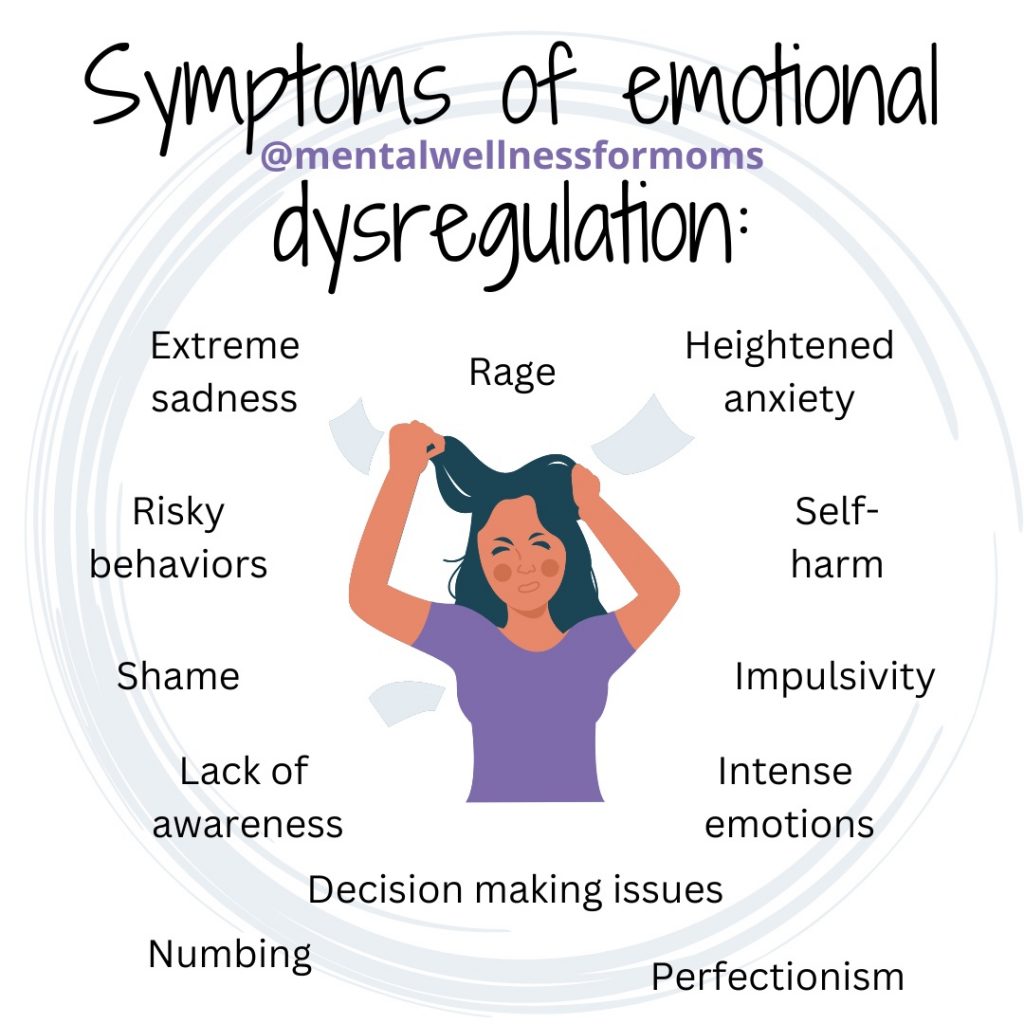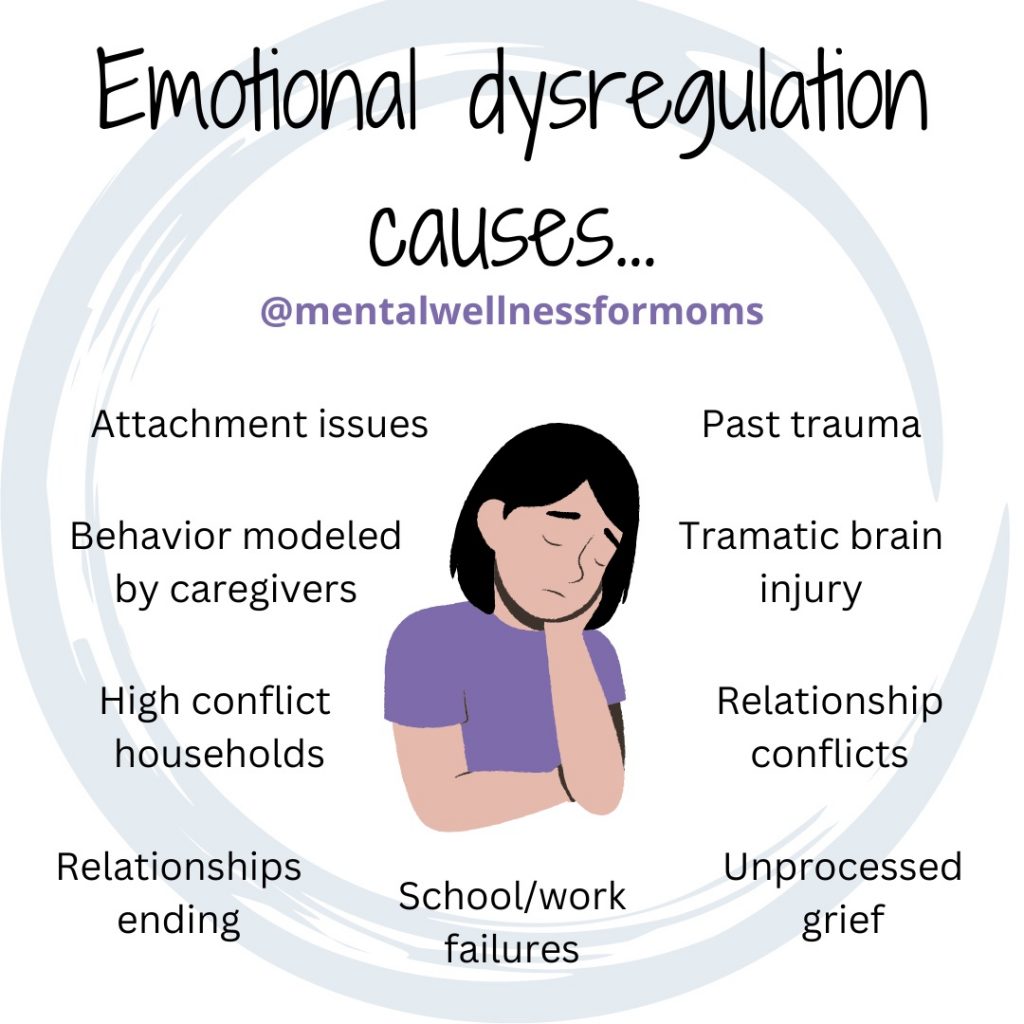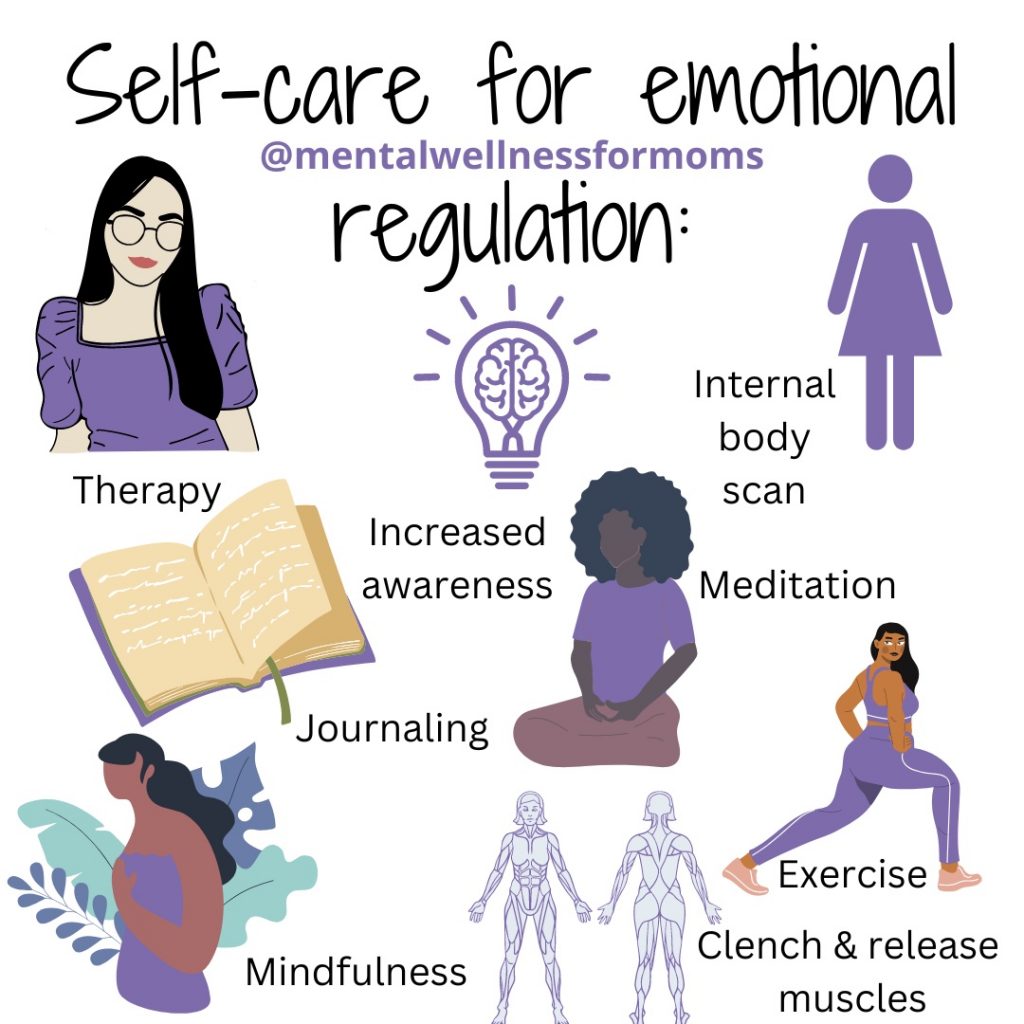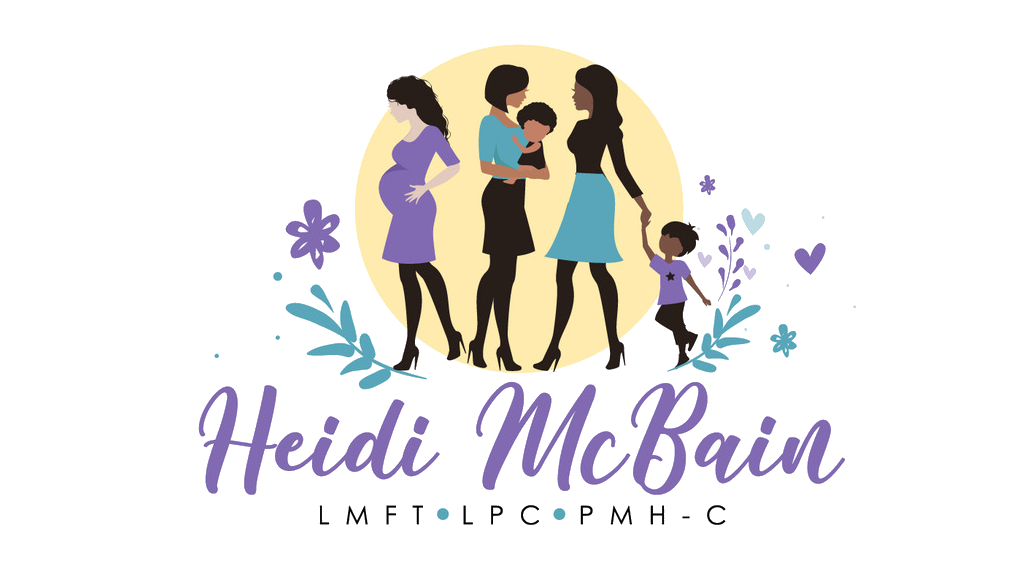
Your emotions are the slaves to your thoughts, and you are the slave to your emotions.
-Elizabeth Gilbert
As moms, it’s so important to be aware of our emotional state at any given time throughout the day. And yet, at times, we can all be emotionally unaware, often lost in thought about other things or worries.
Ideally, as parents, we’re emotionally regulated internally much of the time. But this can fluctuate depending on environmental factors such as your basic needs being met (sleep, hydration, eating a healthy diet for your body, exercise, etc.), having time for daily self-care, feeling emotionally connected to your loved ones and so forth.
Emotional dysregulation can often feel like it comes out of nowhere. One minute you’re feeling calm and grounded, and the next you’re feeling triggered with a myriad of emotions hitting you all at the same time.
None of us are emotionally regulated all of the time (wouldn’t that be nice?). But, with some internal work (often with the help of a therapist), you can learn to notice the signs and signals your body is sending you when you start to feel emotionally dysregulated.
Knowing these somatic symptoms can help you pause, take a deep breath and find your inner calm before simply reacting and saying or doing something you’ll regret.
And, who doesn’t want to be a little more centered, grounded and at peace internally, right?
I’m sending lots of love, compassion and support your way as you move away from emotional dysregulation and towards adding more emotional self-regulation into your daily life.

Symptoms of emotional dysregulation:
- Rage
- Extreme sadness
- Heightened anxiety
- Risky behaviors
- Shame
- Self-harm
- Intense emotions
- Impulsivity
- Lack of insight and awareness
- Decision making issues
- Numbing or avoiding hard feelings and emotions
- Perfectionism
What else would you add here?

Emotional dysregulation causes:
- Past trauma
- Attachment issues
- Traumatic brain injury
- Behavior modeled by caregiver/s
- High conflict households/relationship conflicts
- Relationships ending
- A work or school failure
- Unprocessed grief and loss
What else would you add here?

Self-care for emotional regulation:
- Therapy
- Internal body scan for where you’re carrying stress
- Increased awareness around somatic signs and symptoms of emotional discomfort
- Mediation
- Journaling
- Exercise
- Mindfulness and grounding exercises like focusing on your feet being on the floor
- Clenching and releasing muscles
What else helps you to stay emotionally regulated?
